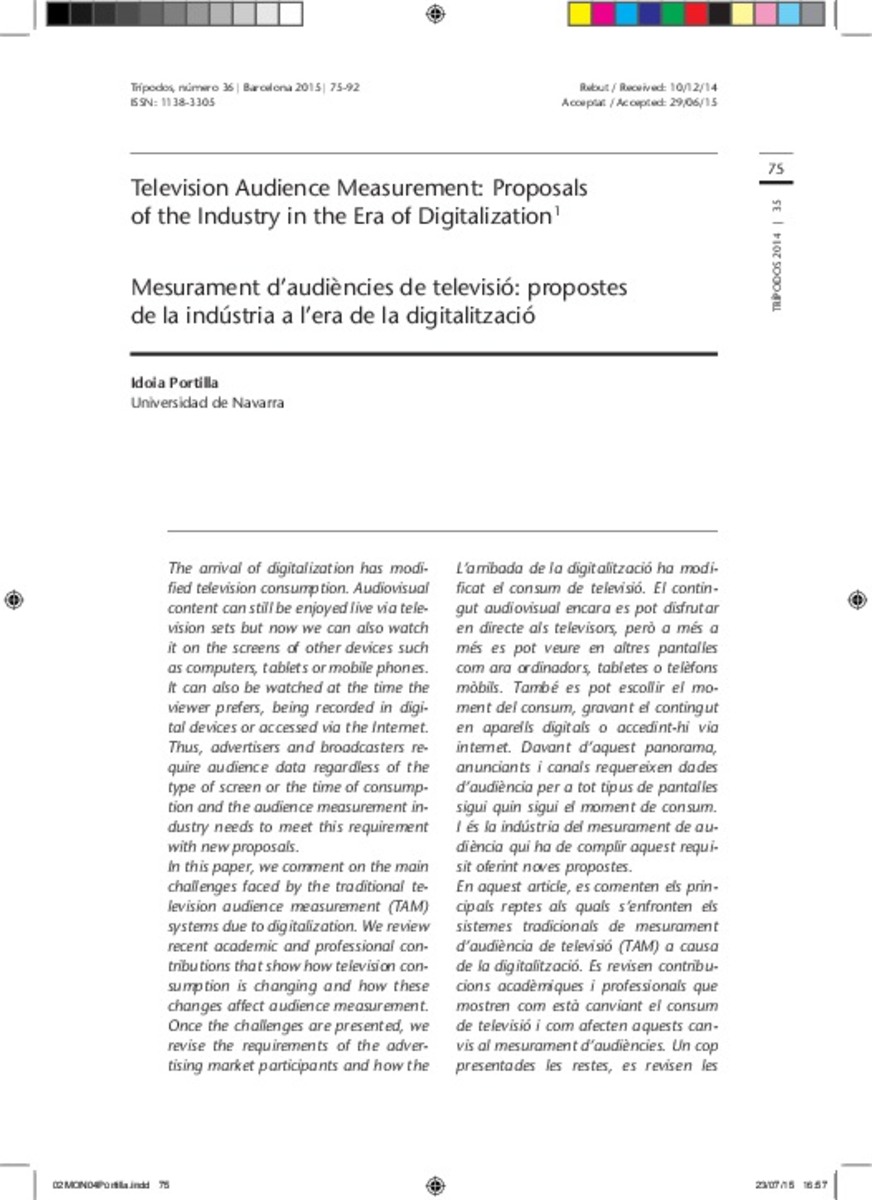Television audience measurement: proposals of the industry in the era of digitalization
Palabras clave :
Digitalization
Audience measurement
Television
Market
Fecha de publicación :
2015
Nota:
This is an open access article distributed under the Creative Commons: Atribution Noncomercial No Derivatives License (cc BY NC ND)
http://www.tripodos.com/index.php/Facultat_Comunicacio_Blanquerna/index
Cita:
Portilla, I., “Television Audience Measurement: Proposals of the Industry in the Era of Digitalization”, Trípodos, (2015), N.36, pp. 75-92
Aparece en las colecciones:
Estadísticas e impacto
0 citas en

0 citas en

Los ítems de Dadun están protegidos por copyright, con todos los derechos reservados, a menos que se indique lo contrario.










